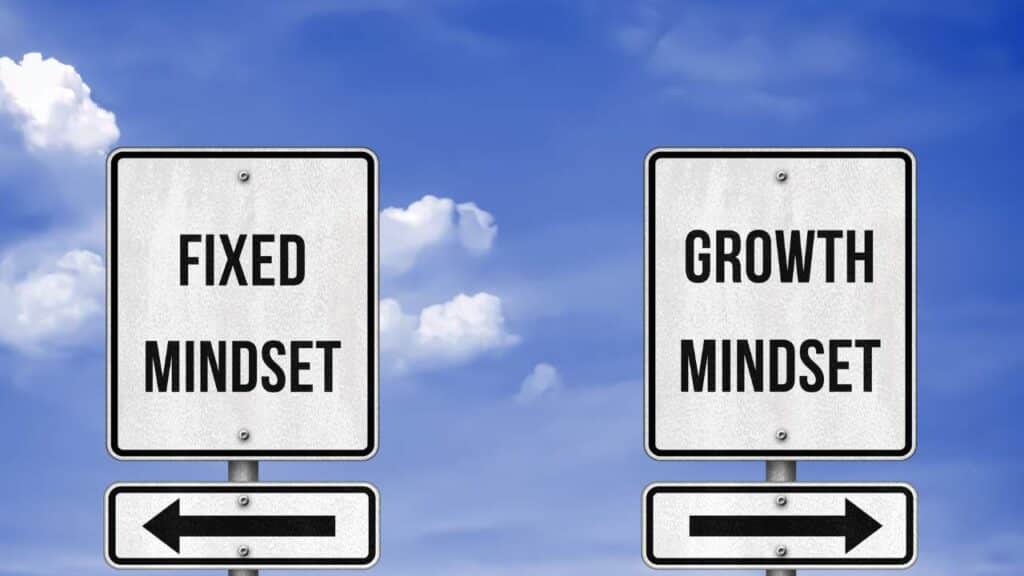The concept of a “growth mindset” versus a “fixed mindset” has profoundly influenced educational practices, personal development, and organizational behavior. Rooted in psychological research, this theory has transformed how we approach learning and success. But where did this influential concept come from, and how did it become so widely recognized?
Here’s a look at the origin of the famous ‘growth vs. fixed' mindset concept.
The Birth of the Concept
The idea of growth versus fixed mindsets was introduced by Dr. Carol S. Dweck, a prominent psychologist at Stanford University. Her research, which began in the 1980s, explored how individuals' beliefs about their abilities and intelligence affect their motivation and achievement.
Dweck's groundbreaking work was based on a series of studies that investigated how people react to challenges and setbacks. She discovered that individuals generally fall into two categories based on their beliefs about their own abilities: those with a “fixed mindset” and those with a “growth mindset.”
The Fixed Mindset
In a fixed mindset, individuals believe that their abilities and intelligence are static traits that cannot be significantly changed. They view talent as innate and unchangeable, leading them to avoid challenges, give up easily, and feel threatened by others' success. This mindset often results in a fear of failure, as individuals see setbacks as a reflection of their inherent limitations.
The Growth Mindset
Conversely, those with a growth mindset believe that their abilities and intelligence can be developed through effort, learning, and persistence. They view challenges as opportunities for growth, embrace feedback, and are more resilient in the face of setbacks. This mindset fosters a love of learning and a desire to improve, which can lead to higher achievement and greater success.
Key Research Findings
Dweck's research involved experiments with children and adults, examining their reactions to failure and success. One notable study involved giving students problems that were designed to be either too easy or too difficult. Students with a growth mindset responded positively to challenging problems, seeing them as opportunities to develop their skills. In contrast, those with a fixed mindset preferred tasks that were easy and were more likely to give up when faced with difficulties.
Another pivotal study investigated how praise affects mindset. Dweck found that praising children for their intelligence (e.g., “You're so smart!”) could reinforce a fixed mindset, while praising effort (e.g., “You worked really hard!”) encouraged a growth mindset. This discovery highlighted the importance of how we communicate about abilities and effort.
The Spread and Impact
Dweck’s work gained widespread attention through her seminal book, Mindset: The New Psychology of Success, published in 2006. The book brought her research to a broader audience, including educators, parents, and business leaders. The concept of mindset quickly resonated with a wide range of fields, from education and parenting to corporate leadership and sports psychology.
In education, the growth mindset has influenced teaching strategies, encouraging educators to foster a learning environment that emphasizes effort, resilience, and the potential for improvement. In the workplace, organizations have adopted growth mindset principles to enhance employee development, promote innovation, and improve team dynamics.
Ongoing Research and Applications
Since the publication of Dweck’s book, research on mindset has continued to evolve, exploring its implications for various aspects of life, including mental health, relationships, and performance. Studies have further examined how mindset affects emotional well-being, academic achievement, and professional success.
Additionally, the concept of mindset has been integrated into various interventions and programs aimed at improving performance and personal growth. These programs often focus on developing a growth mindset in individuals and organizations, helping them to embrace challenges, persist through difficulties, and ultimately achieve their goals.
Conclusion
The origin of the ‘growth vs. fixed' mindset concept can be traced back to Dr. Carol S. Dweck's pioneering research in the 1980s. Her insights into how our beliefs about our abilities influence our behavior and success have had a profound impact on numerous fields.
By understanding and applying the principles of growth and fixed mindsets, individuals and organizations can cultivate a culture of learning, resilience, and continuous improvement. The concept continues to inspire and guide efforts toward personal development and achievement, highlighting the transformative power of our mindset.

